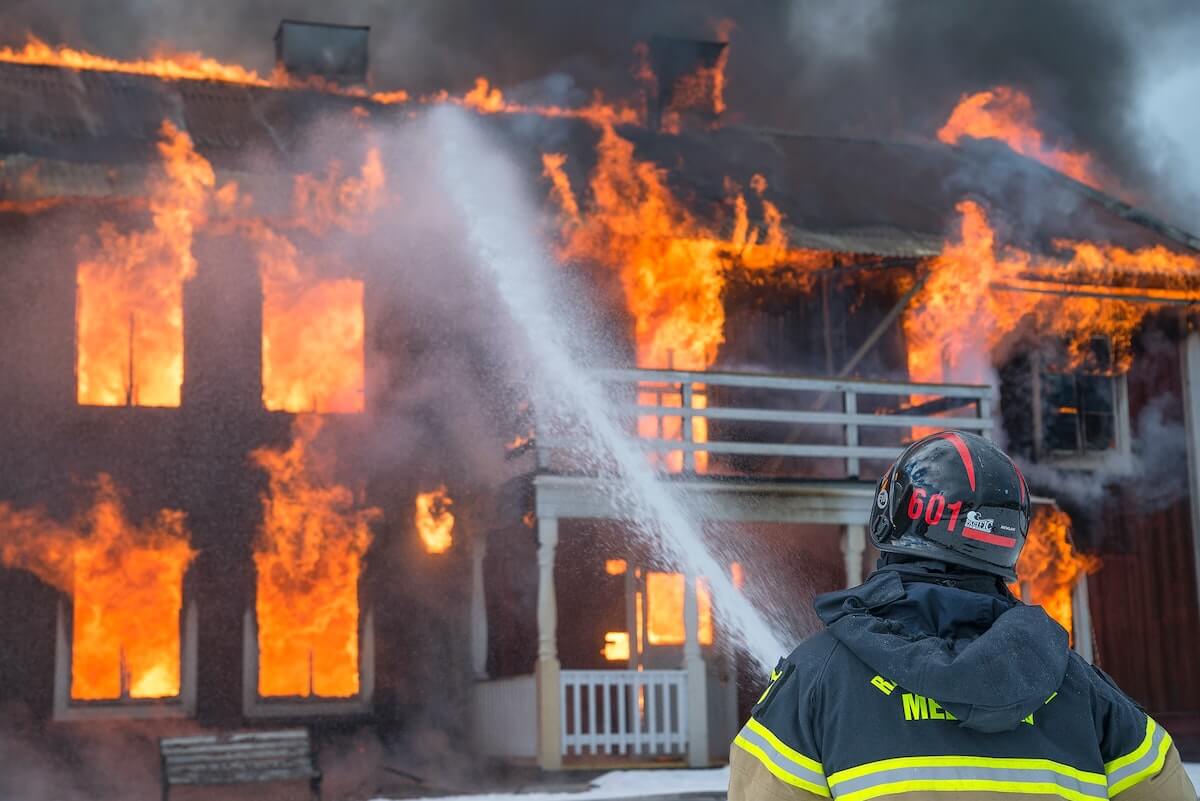Firefighter Tax Deductions
Last Updated: July 12, 2022 • 6 min read
Author: Zach L.
Disclosure: This page may contain affiliate links and we may receive a commission through them, but this is at no additional cost to you. For more information, please read our privacy policy.

As a firefighter, you know that your job is important. Not only do you help keep people safe, but you also play a critical role in protecting property. It's important to be aware of the tax deductions available to you so that you can get the most out of your income.
In this blog post, we will discuss some of the most common firefighter tax deductions and how to take advantage of them. Don't lose out on money that you're entitled to. Read the following information to determine what your deductible expenses could be.
What Tax Deductions Are Firefighters Entitled To?
As a firefighter, you are eligible for tax deductions on a work-related expense. Some of the most common deduction categories include:
- Unreimbursed job expenses
- Travel expenses
- Protective equipment
- Education expenses
Unreimbursed Job Expenses
As a firefighter, you likely have to spend money on job-related expenses that are not reimbursed by your employer. These unreimbursed expenses can be deducted from your taxes. Some examples of common unreimbursed job expenses for an employee firefighter include:
- Uniforms and protective gear
- Tools and equipment
- Approved training program and conferences
- Membership dues for professional organizations

Travel Expenses
If you travel away from home overnight for work, you may be able to deduct your travel expenses from your taxes. This includes airfare, hotel stays, rental cars, and meal expenses.
To qualify for this deduction, your travel must be "away from home." This means that your travel must take you more than 100 miles from your home and it must last for more than 24 hours.
You might be required to travel to fight fires away from home in situations such as a wildfire. If you are a senior firefighter and have been asked to train or educate other firefighters, you might also have to travel for work. In these cases, you can deduct your travel expenses from your taxes.
Protective Equipment
Firefighters are required to wear certain types of protective gear while on the job. This gear can be expensive, but you may be able to deduct the cost from your taxes. Some examples of common deductible protective equipment include:
- Helmets
- Boots
- Turnout gear
- Respirators
When fighting fires, the best protective gear is essential. Don't cut corners just to save money - it's not worth risking your life. You can deduct the cost of this gear from your taxes, so make sure to keep receipts and records of your expenses.

Education Expenses
If you're a firefighter who is pursuing higher education, you may be able to deduct some of your educational expenses from your taxes. This includes tuition, books, and supplies. To qualify for this deduction, you must be enrolled in an eligible educational institution.
Some firefighters may also be able to deduct the cost of professional development courses. These are courses that are taken to maintain or improve your skills as a fire fighter. As a firefighter, it is important to keep learning and improving your skills.
Additional Deductions For Firefighters
In addition to the deductions we've already discussed, firefighters may also be eligible for other deductions. These include:
- Self-employment tax
- Retirement plan contributions
- Health insurance premiums
As a firefighter, you have an important job. Be sure to take advantage of all the tax deductions available to you so that you can get the most out of your income!
Volunteer Firefighter & Rescue Tax Credits
As a volunteer, you are also eligible for certain tax credits. The most common tax credit for volunteer firefighters, rescue squad members, first aid squad members, and other first responders is the non-refundable federal Volunteer Firefighter Tax Credit. This credit is available to those who perform at least 200 hours of service per year at their volunteer fire departments.
The range of credit amounts varies from jurisdiction to jurisdiction but is typically worth between $500 and $2000. The credit can be used to offset the cost of a firefighter’s uniform, equipment, training, and other expenses related to your volunteer work at the fire station.
If you are a volunteer firefighter or rescue squad member, be sure to check with your local governments to see if you are eligible for this tax credit. You are volunteering for an important service and you should take advantage of any tax benefits that are available to you!

Common Mistakes When It Comes To Taxes
Whether you fight fires or not, it's important to know about some of the most common mistakes people make when it comes to taxes. These mistakes can cost you money and time, so it's best to avoid them if at all possible. Here are some of the most common mistakes people make when filing their taxes:
Filing your taxes late. This is one of the most common mistakes people make. If you're not able to file your taxes on time, be sure to file for an extension. This will give you more time to get your taxes in order and avoid any penalties that will reduce your overall gross income.
Failing to keep good records. This is especially important for fire fighters. With a busy schedule, it can be helpful to hire a bookkeeper or accountant to help you keep track of your expenses for the entire tax year. This will help save you when it comes time to pay federal income tax, most likely will reduce your taxable income, and they can frequently find an income tax deduction on a regular basis. This will help your overall tax return when paying the Internal Revenue Service (IRS) and help you stay in line with tax laws.
Missing out on deductions that you're entitled to. There are a lot of deductions and credits available, but many people don't take advantage of them. Be sure to do your research and take advantage of any deductions or credits that you're eligible for.
If you're a firefighter, or even if you're not, be sure to avoid these mistakes when filing your taxes! Firefighters have enough to worry about without having to stress out about their taxes. Be smart and take advantage of all the deductions and credits available to you. You'll be glad you did.
While we hope you get a refund, remember that you are still responsible for any taxes you may owe. The most important thing is to stay safe and be prepared. Firefighters have one of the most critical jobs in the world.
Hire a CPA if you prefer to focus on the job at hand. Imagine the weight being lifted off your shoulders when you don't have to worry about taxes at all!
Take Advantage of These Deductions!
As a firefighter, you are entitled to several United States tax deductions. Be sure to take advantage of them so that you can get the most out of your income. Keep these deductions in mind when preparing your taxes. And if you have any questions, be sure to speak with a qualified tax professional.
